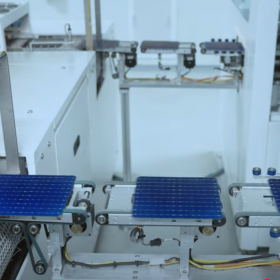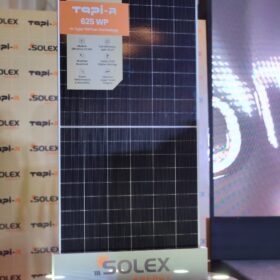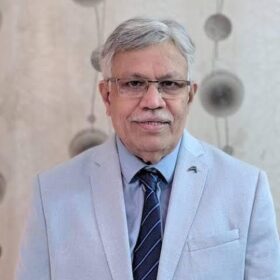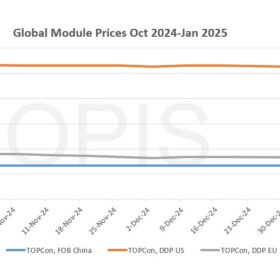From pv magazine Global
Polysilicon imports into China have fallen to their lowest level since 2011, according to analysis from Bernreuter Research.
The research group used Chinese customs statistics to calculate that imports of the feedstock for solar cells and semiconductors fell by 28.5% from 88,093 metric tons (MT) in 2022 to 62,965 MT in 2023. This volume is slightly less than the 64,614 MT reached in 2011.
According to the head of Bernreuter Research, Johannes Bernreuter, the decline comes as leading non-Chinese polysilicon manufacturers Wacker, Hemlock Semiconductor, and OCI Malaysia increasingly shift their shipments from China to Vietnam, which is where three of the four largest Chinese PV module suppliers have set up wafer plants.
The three companies increased their polysilicon exports to Vietnam from 18,672 MT in 2022 to 33,265 MT in 2023, up 78.2% year on year. Bernreuter Research says this increase “more than compensated” for the 13,918 MT they lost in business volume in China in 2023.
The shift appears influenced by US import legislation. From June 6, the US Department of Commerce will impose duties on manufacturers in Cambodia, Malaysia, Thailand, and Vietnam who use Chinese wafers to produce solar cells and modules, circumventing anti-dumping and countervailing duties.
Previously, the US Uyghur Forced Labor Prevention Act, which went into effect in mid-2022, banned products made in Xinjiang, China. This prompted Chinese PV module suppliers to create separate supply chains based on polysilicon from non-Chinese manufacturers for exports to the United States.
Bernreuter Research said that having a wafer production facility outside of China makes it easier for manufacturers to document to the US Customs and Border Protection (CBP) agency that no silicon metal or polysilicon from Xinjiang has entered their supply chains for modules destined for the US market. However, customs statistics show that polysilicon exports from China to Vietnam rose from 639 MT in 2022 to 4,970 MT in 2023 – an increase of more than 700%. Bernreuter Research said this “raises doubts about the claims of a separate supply chain and should sound alarm bells at the CBP.”
This content is protected by copyright and may not be reused. If you want to cooperate with us and would like to reuse some of our content, please contact: editors@pv-magazine.com.







By submitting this form you agree to pv magazine using your data for the purposes of publishing your comment.
Your personal data will only be disclosed or otherwise transmitted to third parties for the purposes of spam filtering or if this is necessary for technical maintenance of the website. Any other transfer to third parties will not take place unless this is justified on the basis of applicable data protection regulations or if pv magazine is legally obliged to do so.
You may revoke this consent at any time with effect for the future, in which case your personal data will be deleted immediately. Otherwise, your data will be deleted if pv magazine has processed your request or the purpose of data storage is fulfilled.
Further information on data privacy can be found in our Data Protection Policy.